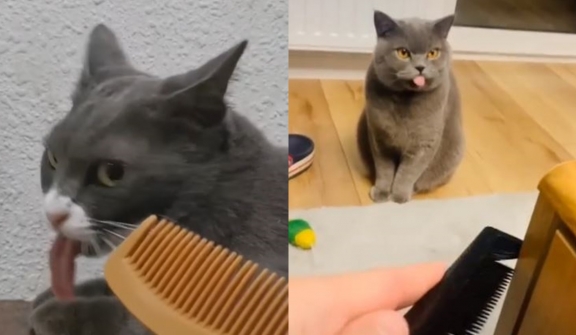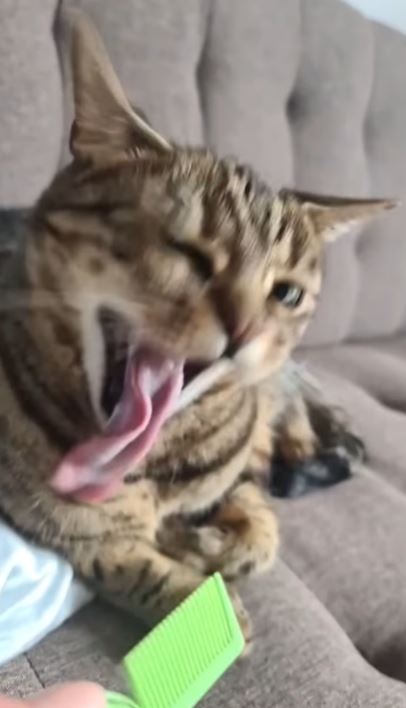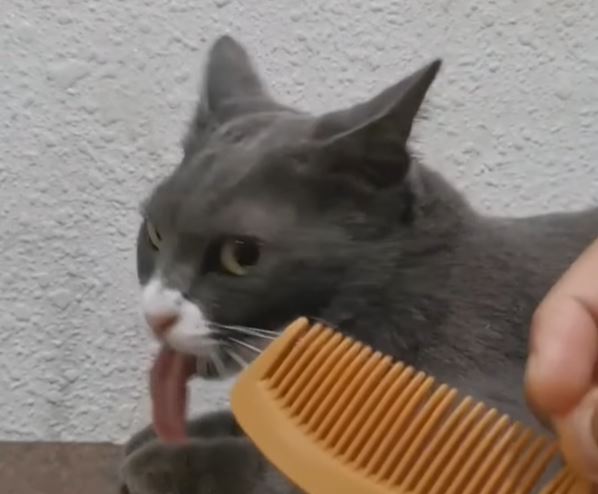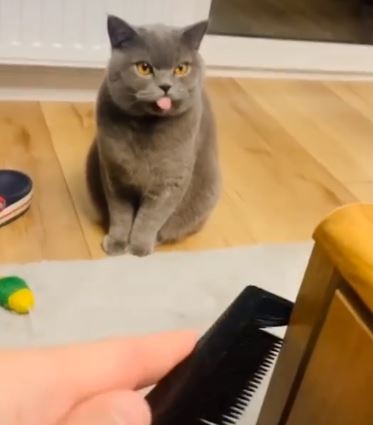
A video captures a cat's strange reaction to the sound of combing teeth. Why?
In numerous viral videos on social media, cats are shown being teased in various humorous situations, from the classic game of shining a laser on the wall to make the boss pounce to placing a cucumber behind your back to scare them.

One of their trolls became a trend that spread for a long time.
Recently, someone came up with a new trick. So a series of cat-owning communities are sharing videos of how to make cats sick with just a comb.
Specifically, according to the video, just rub the teeth of the comb with your hand and make a slightly harsh sound in front of the cat. After about 30 seconds, the cat will start to stick out its tongue and say "Ouch."

This troll was then taken on by several owners and their cats started it too gag after they heard fingers on a comb. Then, numerous owners couldn't help but wonder why that sound caused cats to react so strangely.
In fact, cats react this way not only to the sound of comb teeth but also to many other sounds: the sound of crumpled paper, the crunching of tinfoil, and even the sound of a clock winding.
According to a study published in the journal Feline Medicine and Surgery, there is a condition called Feline Audiogenic Reflex Epilepsy (FARS - roughly translated as Feline Acoustic Reflex Epilepsy).

According to the study's author, Mark Lowry, many cats—especially older cats—react very strongly to loud sounds.
The study showed that 85% of cats have a convulsive reaction to the sound of tinfoil, 73% to the sound of a paper bag, and 64% to the sound of typing... and the sound of boiling water. and printer sounds.
The answer is yes! Cats are known as predators. They not only have razor-sharp teeth and razor-sharp claws but also, more importantly, whiskers that are sensitive enough to sense high-frequency sound waves.

In the wild, cats are sensitive to high-frequency sounds to hunt prey. But for domestic cats, the situation is different.
So, when owners scrape their fingers on a comb, cats tend to gag and express discomfort
The study also showed that cats tend to be frightened or suffer from epileptic seizures when they hear high-pitched, harsh sounds (such as the sound of comb teeth).
Additionally, high-pitched sounds can lead to an increase in cats' stress levels. This stress can lead to depression, weakening their immune systems and making them more susceptible to illness
Watching the video below:




